Related Research Articles

The Republic of Texas, or simply Texas, was a breakaway state in North America. It existed for close to 10 years, from March 2, 1836 to February 19, 1846. Texas shared borders with Mexico, the Republic of the Rio Grande, and the United States of America. The Republic of Texas had engaged in some complex relations with various nations. The United States was one of the key players that recognized Texas's independence. However, they hesitated to annex the Republic due to domestic affairs with Mexico. European powers had extended their recognition and wanted to engage in trade with Texas. These relations were very significant and shaped Texas's republic. This had led to the annexation by the US which led to the Mexican-American War.

The 1840s was a decade of the Gregorian calendar that began on January 1, 1840, and ended on December 31, 1849.

Presidential elections were held in the United States from November 1 to December 4, 1844. Democratic nominee James K. Polk narrowly defeated Whig Henry Clay in a close contest turning on the controversial issues of slavery and the annexation of the Republic of Texas. This is the only election in which both major party nominees served as Speaker of the House at one point, and the first in which neither candidate held elective office at the time.

The Republic of Texas was annexed into the United States and admitted to the Union as the 28th state on December 29, 1845.
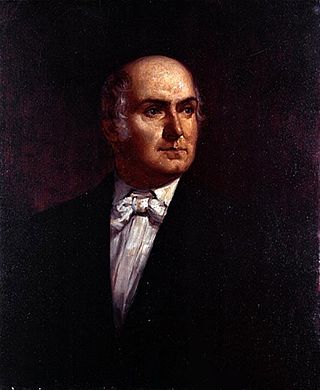
Abel Parker Upshur was an American lawyer, planter, judge, and politician from the Eastern Shore of Virginia. Active in Virginia state politics for decades, with a brother and a nephew who became distinguished U.S. Navy officers, Judge Upshur left the Virginia bench to become the Secretary of the Navy and Secretary of State during the administration of President John Tyler, a fellow Virginian. He negotiated the treaty that led to the 1845 Texas annexation to the United States and helped ensure that it was admitted as a slave state. Upshur died on February 28, 1844, when a gun on the warship USS Princeton exploded during a demonstration.
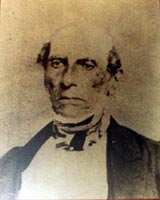
Henri Castro, was a French diplomat who was one of the most important empresarios of the Republic of Texas.

Oakwood Cemetery, originally called City Cemetery, is the oldest city-owned cemetery in Austin, Texas. Situated on a hill just east of I-35 that overlooks downtown Austin, just north of the Swedish Hill Historic District and south of Disch-Falk Field, the once-isolated site is now in the center of the city.

The Mier expedition was an unsuccessful military operation launched in November 1842 by a Texian militia against Mexican border settlements; it was related to the Somervell expedition. It included a major battle at Ciudad Mier on December 26 and 27, 1842, which the Mexicans won. The Texian attack was launched partly in hopes of financial gain and partly in retaliation for the Dawson Massacre earlier that year, in which thirty-six Texas militia were killed by the Mexican Army. Both conflicts were part of continuing efforts by each side to control the land between the Rio Grande and Nueces River. The Republic of Texas believed that the territory had been ceded to it in the Treaties of Velasco by which it gained independence, but Mexico did not agree. The expedition is best known for the Black Bean Episode, in which the Mexican Army decimated escaped prisoners, selecting for execution one in ten prisoners by drawing beans from a pot.
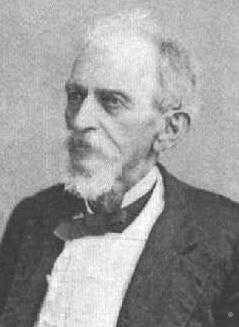
Ashbel Smith was a slave owner, pioneer physician, diplomat, and official of the Republic of Texas, Confederate officer and first President of the Board of Regents of the University of Texas. Smith helped lead efforts to keep Texas a Republic and slave state.
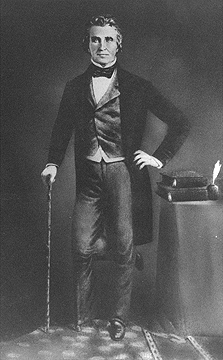
Robert McAlpin Williamson was a Republic of Texas Supreme Court Justice, state lawmaker and Texas Ranger. Williamson County, Texas is named for him. He is the first white person documented playing the banjo.
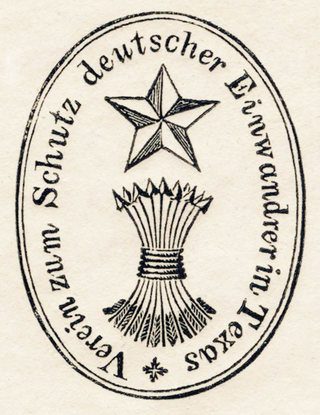
The Mainzer Adelsverein at Biebrich am Rhein, better known as the Mainzer Adelsverein, organized on April 20, 1842, was a colonial attempt to establish a new German settlement within the borders of Texas.

Republic of Texas–United States relations refers to the historical foreign relations between the now-defunct Republic of Texas and the United States of America. Relations started in 1836 after the Texas Revolution and ended in 1845 upon the annexation of Texas by the United States.

The Republic of Texas was a North American nation from 1836 to 1846; in its short time it established diplomatic relations worldwide, mainly through the cotton trade.

The American Union of Associationists (AUA) was a national organization of supporters of the economic ideas of Charles Fourier (1772–1837) in the United States of America. Organized in 1846 in New York City as a federation of independent local Fourierist groups, the AUA published a weekly magazine called The Harbinger and published more than 70 books and pamphlets, which helped it to enjoy a brief moment of influence spreading the ideas of communitarianism to a circle of leading intellectuals.
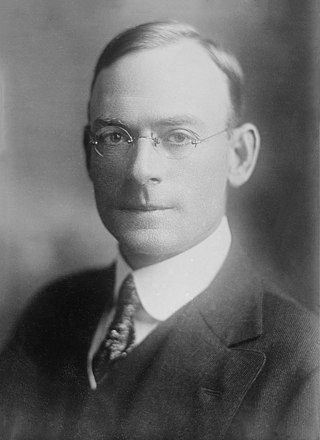
Rev. Robert Ernest Vinson was president of the University of Texas at Austin from 1916 to 1923. He was president of Western Reserve University, now Case Western Reserve University, from 1923 to 1933.
The Mexican Navy steam paddle frigate Montezuma was part of the Mexican Navy from 1842 to 1847. She participated in the Naval Battle of Campeche in 1843. She was one of the first paddle warships to see action in a naval battle. She was then purchased by the Spanish Navy, renamed Castilla and was their first steam warship to cross the Atlantic Ocean.
The Fourth Legislative Assembly of the Wisconsin Territory convened from December 5, 1842, to April 17, 1843, from December 4, 1843, to January 31, 1844, from January 6, 1845, to February 24, 1845, and from January 5, 1846, to February 3, 1846, in regular session.
George Knight Teulon was a 19th-century English-Texian journalist and freemason who was a cofounder and the editor of The Austin City Gazette, the first newspaper published in Austin, the capital of the Republic of Texas, and the publisher of The Western Advocate.
References
- ↑ A. E. Skinner (June 6, 2001). "Western Advocate". The Handbook of Texas Online. The Texas State Historical Association.
- ↑ "Western Advocate (City of Austin [i.e. Austin], Tex.) 1843-1844". Library of Congress .